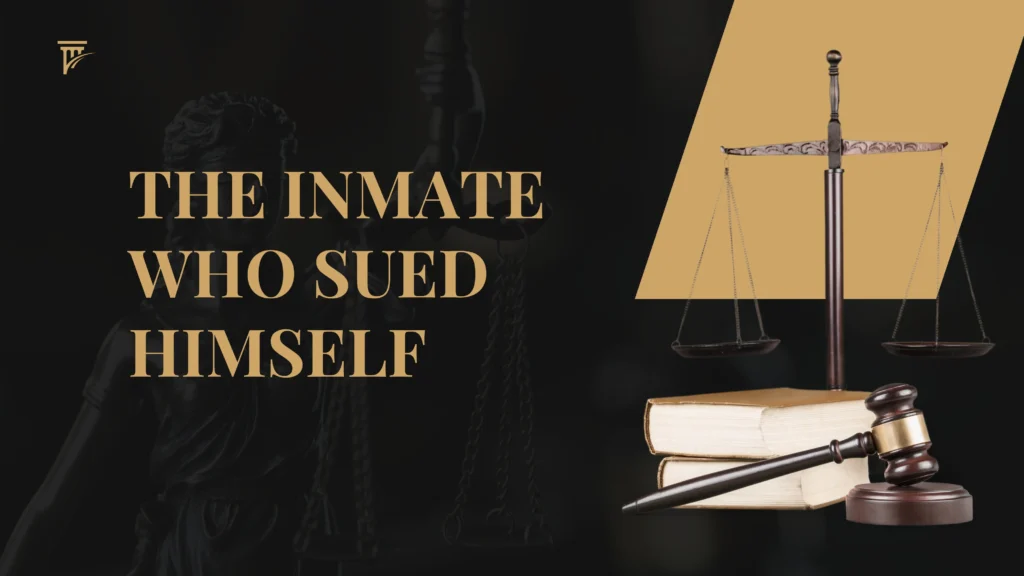
In 1995, a man named Robert Lee Brock made headlines for filing one of the strangest lawsuits ever seen in the American court system. At the time, Brock was an inmate at the Indian Creek Correctional Center in Chesapeake, Virginia serving a 23-year sentence for breaking and entering and grand larceny. But it wasn’t his crimes that shocked people—it was who he decided to sue: himself.
Yes, Brock filed a lawsuit against himself. He claimed that by getting drunk on July 1, 1993, he had violated his own civil rights and religious beliefs. In his seven-page handwritten complaint, Brock demanded $5 million in damages. He said his own actions had caused him deep physical, and emotional pain. But since he was in prison and couldn’t work he added “I want to pay myself $5 million, but I ask the state to pay it since I can’t work,” as reported by Time magazine.
What Led to the Lawsuit
Brock believed his intoxication was the reason he committed the crimes that landed him in prison. Because his religion didn’t allow alcohol use, he said he had gone against his own beliefs and suffered for it. He even wanted $3 million for his wife and children—to cover their pain, suffering and future college costs—and another $2 million for his own support while behind bars.
The case was sent to Judge Rebecca Beach Smith. While she admired his creativity she dismissed the case as “frivolous.” In her ruling she wrote “Plaintiff has presented an innovative approach to civil rights litigation. However, his claim, and especially the relief sought, are totally ludicrous.”
A Pattern of Legal Action
This wasn’t Brock’s first time filing lawsuits. In fact, according to FindLaw between 1995 and 1996 alone he submitted twenty-nine appeals, making him one of the most active litigants in Virginia at the time. However, none of his cases ever succeeded. Courts later restricted his ability to file any more lawsuits, because they were considered a waste of time and resources. One court even noted “None of Brock’s allegations have ever been found by any court to have any merit.”
His legal arguments were often bizarre. He claimed that his mind and body were in conflict—that while his physical self broke the law by getting drunk, his conscious self had to suffer for it. So in a way he believed he had committed a crime against himself.
Reactions and Public Attention
The lawsuit quickly gained national attention. Many media outlets covered the story, calling it both ridiculous, and fascinating. TIME magazine even ranked it third in its Top 10 Outrageous Legal Battles, calling it a “brilliant example of just how creative people can get with the legal system.”
While most people viewed the case as absurd, some saw it as an example of how far individuals might go when they feel helpless or misunderstood. Brock’s case was not just a legal oddity—it was also a reflection of a man, trying to make sense of his situation in a highly unusual way.
Other Legal Complaints
Brock didn’t stop there. He also tried to sue over prison conditions. In one case he filed a complaint under the Religious Freedom Restoration Act (RFRA). He claimed his religious rights were violated when officials took away a prayer pipe. But courts found that he didn’t provide enough evidence. According to Justia Law, a federal appellate court ruled that his claim lacked proof that his religious practice had been seriously affected.
Robert Lee Brock’s case is now remembered as one of the most bizarre in U.S. legal history. It’s been talked about in law classes, written about in magazines and discussed in courtrooms.
Sometimes stories like Brock’s show how the legal system can be used in unexpected ways. And even though the lawsuit didn’t succeed—it continues to remind people just how strange, and surprisingly creative, the world of law can be.


